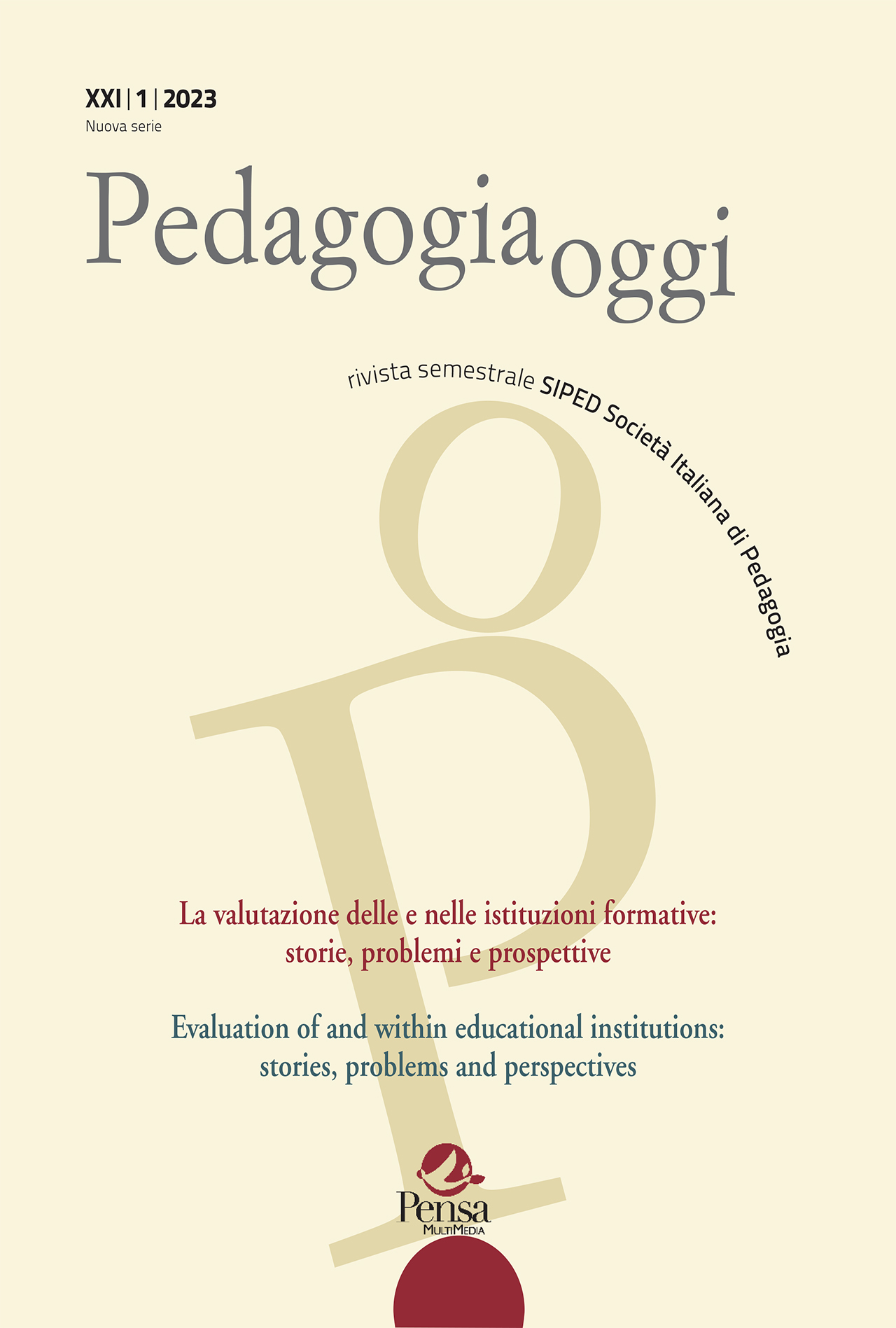Evaluating mental health education interventions at school: Teachers’ and school principals’ representations
DOI:
https://doi.org/10.7346/PO-012023-27Keywords:
Educational practice, Mental well-being promotion, Secondary school, Qualitative study, EvaluationAbstract
The terms “evaluation” and “education” are often considered antithetical. This fact probably stems from a typical “negative” attitude towards evaluation, supported by the current practice of evaluation, often based on “pricing”, certifying, and accounting for the “merit” of a person and service. This translates into anxiety and fatigue in educational services, reducing the evaluative act to a bureaucratic and administrative practice. Consequently, even when the evaluation has a “formative” meaning, it is reduced to the evaluation of customers’ satisfaction at the end of an educational path. Based on these assumptions, we sought to explore the opinions, representations, and experiences of a group of secondary school teachers and principals about evaluating educational practices to promote mental well-being and prevent adolescent discomfort. Our contribution will present some reflections that emerged from the research mentioned above.




